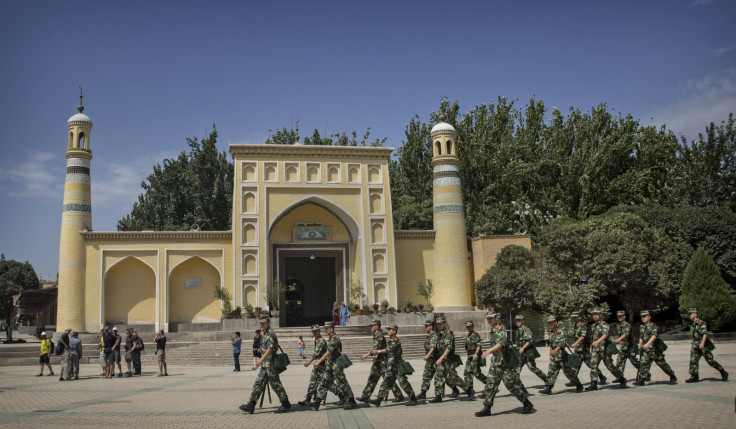Beijing's anti-Muslim policies are driving China's Muslims to join Isis
Xinjiang is the fifth highest source of Islamic State fighters – behind Saudi Arabia and Tunisia

Beijing's religious restrictions on China's Muslim minority are driving people to join the Islamic State (Isis/Daesh) terrorist group, a new report reveals.
Authorities in China have placed strict controls on some Muslim practices, including growing beards and fasting during Ramadan, which they believe are symbols of "Islamic extremism".
According to AFP News, Beijing has acknowledged that IS is recruiting Uighurs from the predominantly Muslim region of Xinjiang. However, the Chinese government has insisted that this is due to outside forces conducting acts of violence in Xinjiang and other parts of China, claiming hundreds of lives over the years.
Washington DC-based New America Foundation's report stated: "[These policies] could be a push factor driving people to leave the country and look elsewhere for a sense of 'belonging'."
The conclusion was made based on information from more than 3,500 foreign recruits provided by an IS defector. Out of those, 114 are believed to have come from Xinjiang, making it the fifth highest source of IS fighters among the regions listed in the data, coming behind three areas in Saudi Arabia and one in Tunisia.
The report stated that IS recruits appeared to be more likely to come from "regions with tense local-federal relationships". It also noted that the Xinjiang area had "substantial state repression" and cited "significant economic disparities" between the ethnic majority Han Chinese and local Uighur Muslims as being another cause of high IS recruitment.
The US think tank also noted that registration forms had been filled in for children, including one as young as 10 years old. It noted that "several of the forms for these children explicitly stated they joined Isis with their families".
It appeared that most of the Isis recruits from Xinjiang were less educated, well-travelled and more likely to be married than others who joined the terror group. The report also cited a relatively low level of religious training among the Xinjiang recruits.
© Copyright IBTimes 2024. All rights reserved.






